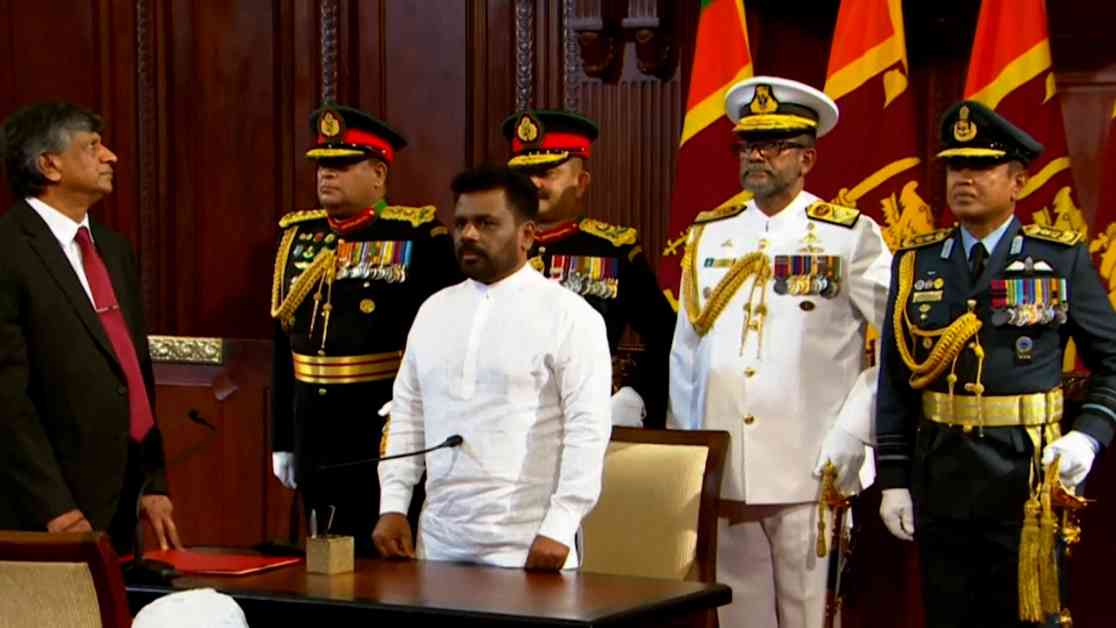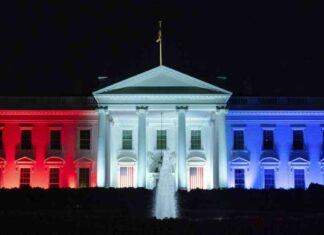Anura Kumara Dissanayake Takes Office as Sri Lanka’s President
In a historic moment for Sri Lanka, Anura Kumara Dissanayake, a Marxist-leaning leader, was officially sworn in as the country’s new president after a landslide victory in the 2024 election. The swearing-in ceremony was a significant event, marking a new chapter in Sri Lankan politics and signaling a shift in the country’s leadership.
Dissanayake’s election win was fueled by public anger over the economic crisis that hit Sri Lanka in 2022. The country faced severe economic challenges, including high inflation, rising unemployment, and a sharp decline in living standards for many citizens. Dissanayake campaigned on a platform of addressing these issues and bringing about much-needed change to improve the lives of Sri Lankans.
During his inauguration speech, Dissanayake reiterated his commitment to implementing policies that would benefit the people of Sri Lanka. He emphasized the need for economic reform, social justice, and transparency in government. Dissanayake’s message resonated with voters who were disillusioned with the previous administration’s handling of the economic crisis and its failure to address the needs of the population.
A New Direction for Sri Lanka
Dissanayake’s presidency marks a significant departure from the previous government’s policies. As a Marxist-leaning leader, he is expected to prioritize social welfare programs, workers’ rights, and economic equality. His administration is likely to focus on reducing income inequality, increasing access to healthcare and education, and promoting sustainable development practices.
One of Dissanayake’s key priorities is to address the root causes of the economic crisis and implement policies that will stimulate economic growth. He has pledged to work towards reducing inflation, creating jobs, and improving the overall economic stability of Sri Lanka. Dissanayake’s emphasis on economic reform is seen as a welcome change by many Sri Lankans who have been struggling to make ends meet in the face of the economic downturn.
In addition to economic reforms, Dissanayake has also promised to tackle corruption and improve governance in Sri Lanka. He has vowed to root out corruption at all levels of government and strengthen institutions to ensure transparency and accountability. Dissanayake’s commitment to good governance has garnered support from civil society organizations and anti-corruption advocates who see his presidency as an opportunity to clean up Sri Lanka’s political system.
Challenges Ahead
While Dissanayake’s presidency holds promise for positive change in Sri Lanka, he faces significant challenges ahead. The country’s economy remains fragile, and the effects of the 2022 economic crisis are still being felt by many Sri Lankans. Dissanayake will need to implement bold and effective policies to jumpstart economic growth and create opportunities for the population.
Moreover, Dissanayake’s Marxist-leaning ideology may face resistance from certain segments of society and the business community. Some critics argue that his policies could deter foreign investment and hinder economic growth. Dissanayake will need to strike a balance between implementing his progressive agenda and maintaining a favorable business environment to ensure sustainable development for Sri Lanka.
In conclusion, Anura Kumara Dissanayake’s presidency represents a new beginning for Sri Lanka. His commitment to economic reform, social justice, and good governance signals a shift towards a more inclusive and equitable society. As he assumes office, Dissanayake faces the formidable task of steering Sri Lanka towards a path of prosperity and progress. Only time will tell if he can deliver on his promises and lead the country to a brighter future.



























